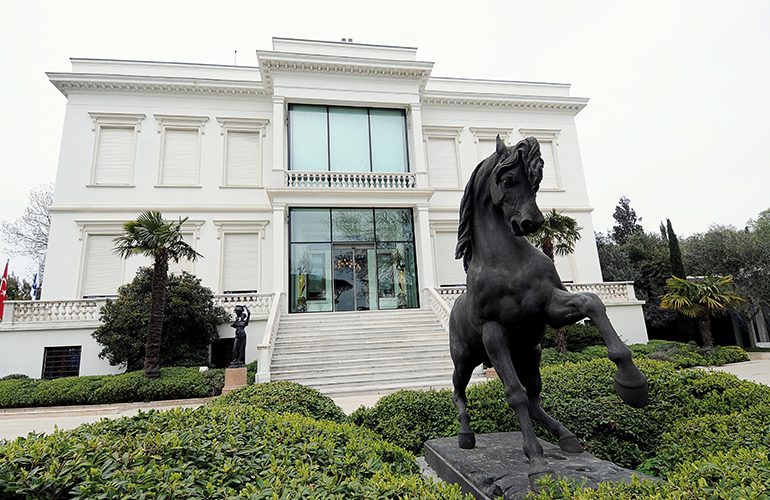SAKIP SABANCI MUSEUM

Sabancı University’s Sakıp Sabancı Museum is located in the neighborhood of Emirgan, one of Istanbul’s oldest settlements on the Bosphorus.
In 1927, Prince Mehmed Ali Hasan of the Hidiv family of Egypt commissioned the Italian architect Edouard De Nari to build the villa, now the museum’s main building. The dwelling was used as a summer house for many years by various members of the Hidiv family; for a short time it also served as the Montenegran Embassy.
After the mansion was purchased in 1951 by industrialist Hacı Ömer Sabancı from Princess Iffet, a member of the Hidiv family, the home came to be known as “Atlı Köşk”, The Horse Mansion, because of the statue of a horse (purchased in the same year) in the garden. This statue is the 1864 work of the French sculptor Louis Doumas.
A second horse sculpture on the grounds of Atlı Köşk is the cast of one of the four horses taken from Sultanahmet square in Istanbul when it was looted by Crusaders during the fourth Crusade in 1204 and removed to the Basilica of San Marco in Venice.
After the death of Hacı Ömer Sabancı in 1966, Atlı Köşk began to be used permanently as a home by Sakıp Sabancı, the eldest of the family, and for many years housed Sakıp Sabancı’s rich collection of calligraphy and paintings. In 1998, together with its collection and furnishings, the mansion was allocated to Sabancı University to be transformed into a museum.
With the annex of a modern gallery, the exhibition areas of the museum were opened to the public in 2002; with a further extension of the layout in 2005, the technical level of the museum meets international standards.
Today Sabancı University Sakıp Sabancı Museum presents a versatile museological environment with its rich permanent collection, its conservation and curatorial units, the hosting of comprehensive visiting exhibitions, model educational programs, and various concerts, conferences and seminars .
For further information : muze.sabanciuniv.edu/tr